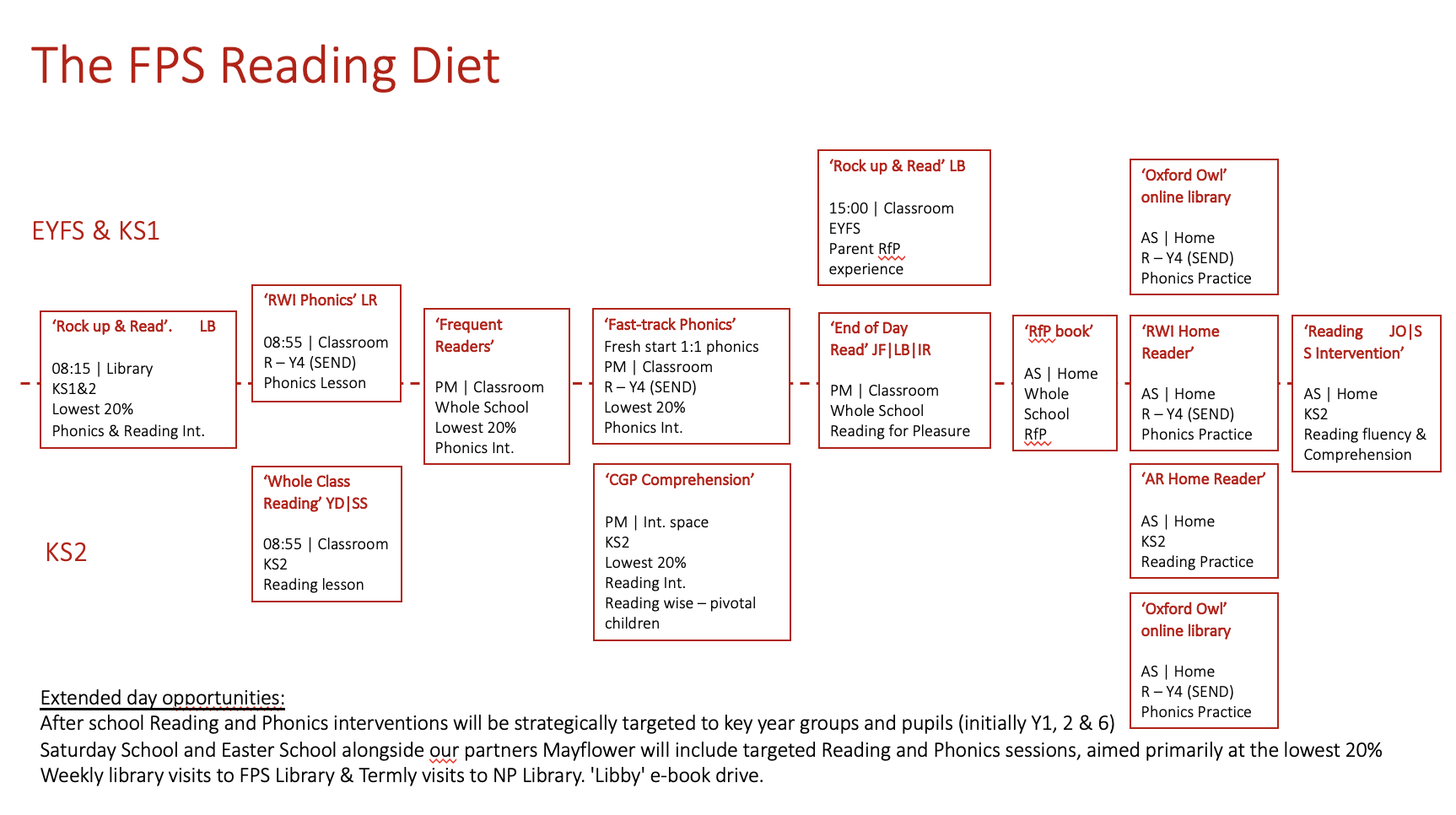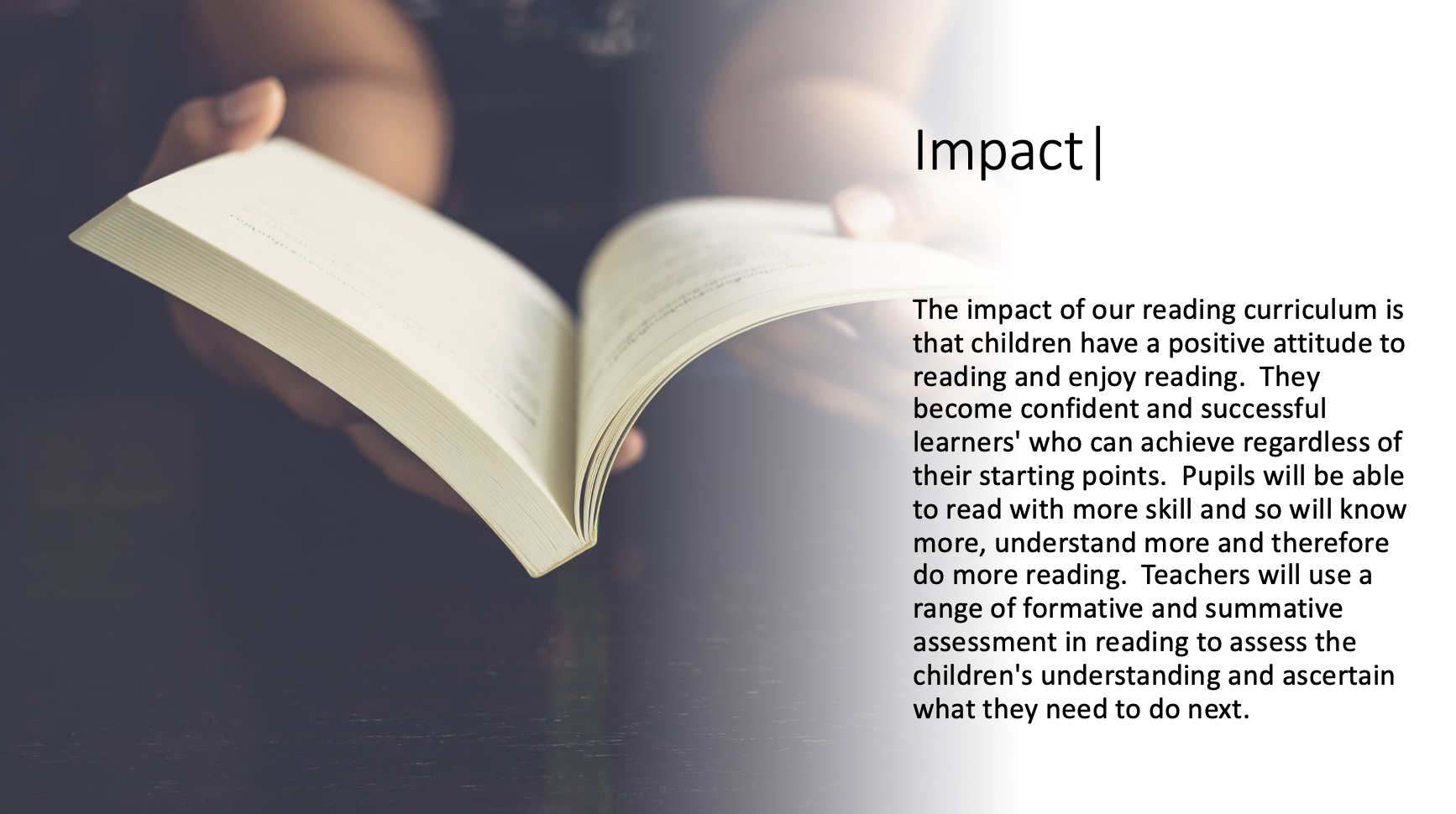Reading Diet
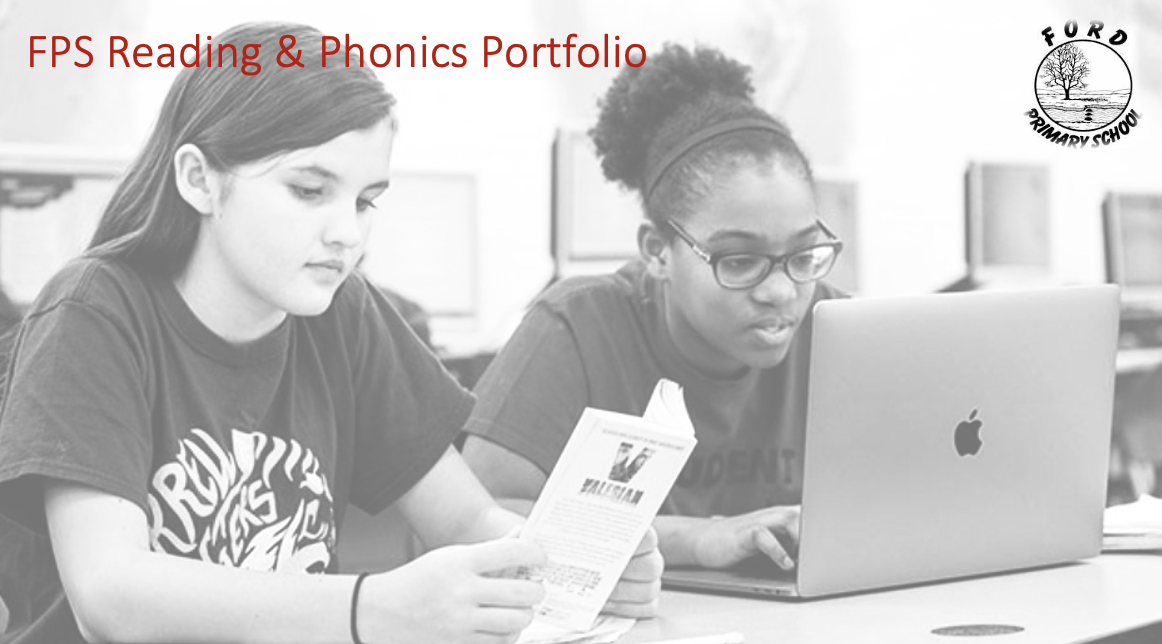
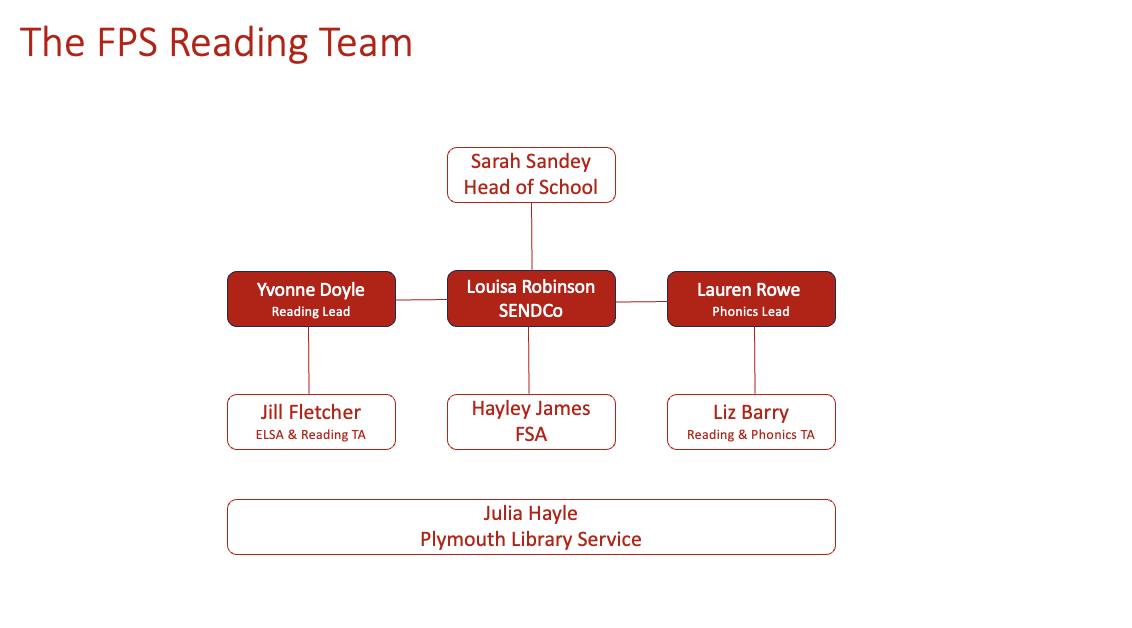
Intent
At Ford Primary School, we believe that success at reading is key to unlocking the rest of the curriculum. As a basis, we use research from the Scarborough Reading Rope and the DfE Reading Framework and follow the aims outlined in the National Curriculum. We prioritise reading to ensure that children are equipped with the skills they need to access the curriculum as a whole. All our children are encouraged to read widely across both fiction and non-fiction to develop their knowledge of themselves and the world in which they live, to establish an appreciation and love of reading, and to gain knowledge across the curriculum.
Reading widely and often increases pupils’ vocabulary because they encounter words they would rarely hear or use in everyday speech. Reading also feeds pupils’ imagination and opens a treasure-house of wonder and joy for curious young minds. It is our aim that, by the end of their primary education, where appropriate, all pupils can read fluently, with confidence, and comprehend text in any subject they meet in their forthcoming secondary education.
Vision
We believe that every child has the right to become a reader.
At Ford, this begins on the very first day, from Nursery through to Year Six.
We understand that before reading is learnt, being confident and able to speak, communicate and listen is key. We place great importance on developing oracy and communication skills, before and during reading opportunities.
Using clear systems to teach phonics and reading, enables every child to have the very best teaching. Reading is a priority for us. We know that reading affects every aspect of a child’s life. We use Read Write Inc. as our phonics scheme. This is taught every day in EYFS (starting from Day 1) through to Year Two, and phonics interventions continue into Key Stage Two where needed. The ‘Teaching of Reading’ at Ford follows a clear structure, which is implemented across the majority of our Learning Academies Trust schools. Every class has a daily ’Teaching of Reading’ lesson, focusing on vocabulary development, prediction, inference, evaluating, retrieval and summarising skills. At the end of the day, every class reads together for a minimum of 15 minutes.
Community is important to us. We know that reading continues after school, and so we work closely with our local community to make sure that our pupils and families have a range of books, reading opportunities and reading activities to join in with at home.
We support every child with their reading, whether they need a little extra help or some exciting new recommendations. We tailor our support to the child, offering encouragement, warmth and positivity. At Ford, every child is a reader.
Curriculum Design
Our reading curriculum is built upon the statutory objectives laid out in the National Curriculum. As an academy, the English leads worked together to build a set of core reading principles as well as a rationale for reading.
Our reading rationale is built upon these core principles as well as research informed practice.
National Curriculum Programme of Study

LAT Rationale

Research
The key principles behind how reading is taught at Ford Primary School is based on the “Reading Rope” by Scarborough, H. S. (2001). We recognise that although there are many strands of teaching reading, a true reader is not an independent, fluent and confident reader unless all the strands are combined.
Pupils are able to decode, comprehend, read with pace and fluency, but also use their imagination to explore the wonders of reading and transfer reading in the classroom, into reading for information, knowledge, skills and pleasure; being able to adapt any form of reading for the real world. Working together with a committed, dedicated team, (including parents, students, volunteers and the library teams) we ensure that every child at Ford has access to the very best, high quality texts.
Reading is taught through proven evidence-based techniques and systems, focusing on whole class ‘Teaching of Reading’ approaches. Pupils are taught meta-cognitive self-regulation strategies to ensure that they become true readers, ready to read in the “real world”, for “real purposes”.
High quality interventions are available for pupils who need them. Pupils and families are encouraged to join in with ‘Reading for Pleasure’ challenges, access books through our links with the local Library and join in with Community Reading events.
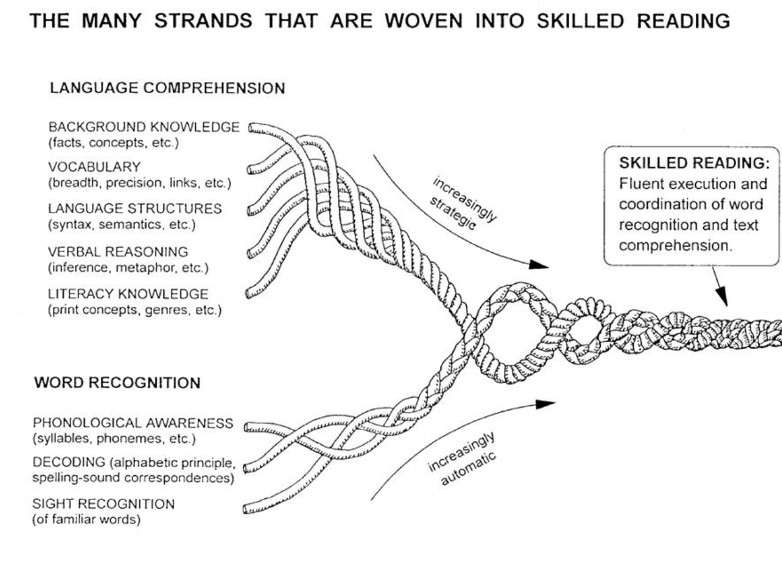

Our Scheme - Read Write Inc
Read Write Inc. Phonics aims to support the development of pupil literacy regardless of socio-economic status, special need or language status, by providing a whole-school approach to teaching phonics and early reading.
Reading is a more important driver of social mobility than socio-economic status (OECD, 2002). Children from deprived backgrounds read better and enjoy reading more when they have excellent teachers (Read On Get On, 2016). Leaders who build a school culture of supportive professional development and teachers who have a love of reading have the biggest impact on children’s literacy outcomes.
Read Write Inc. Phonics teaching resources include handbooks for teachers; handbook for the Reading Leader; resources for teaching daily phonic lessons; decodable storybooks including books to read at home; children’s writing books; and subscription to online resources through Oxford University Press.
The designated reading leader (RL) is responsible for leading the programme and establishing a coaching cycle of ongoing practice, observation and feedback. There is a RMT online portal for schools, which includes films for RLs to use during weekly practice with their team. They assess children half-termly, reorganise groupings; and set up and monitor daily tutoring to ensure the slowest progress children keep up with their peers.
The handbooks provide structured teaching guidance, including daily and weekly planning. Teachers are trained on both the programme content and the pedagogical approach – not just what to teach, but how. Consistent behaviour management strategies aim to ensure every child participates in every lesson.
Read Write Inc. is a finely levelled, phonically-based reading scheme with interactive activities. It is the UK’s leading synthetic Phonics programme with the most respected and comprehensive professional development.
Read Write Inc. Phonics is for children from Nursery to Year 4, as well as children with SEND in older year groups. The programme is published by Oxford University Press and includes:
With Read Write Inc. Phonics, all children:
Read Write Inc | Monitoring of Groups
How are children grouped?
Phonics begin in Nursery with the focus is on acquiring those pre-Phonics skills needed to access the RWI programme in the summer term, if not before, of Nursery. These focuses include lots of opportunities for singing nursery rhymes, being actively involved with stories, for example repeated phrases, visual tracking through use of bubbles, developing speaking and listening skills as well as confidence. There are also lots of opportunities in the classroom environment to develop early communication and oracy skills, through role play areas and having high quality interactions with staff and other children. Children also learn the RWI routines. Once children have mastered these pre-Phonics skills, they go on to learn oral blending and in the Summer term, the children start learning a sound a week and this is shared with parents in the same way it is shared with parents in Reception and KS1.
We follow the ‘Making a Strong Start in Reception’ at Ford. Children in Reception learn a sound a day and then once they have learnt 5 sounds, they take home QR codes to practise these 5 sounds at home, as well as some Fred Games QR codes. Children are assessed weekly in accordance with the ‘Making a Strong Start Tracker’. Children are identified in the first week using the Tracker and daily interventions are put in place straight away to ensure children keep up instead of having to catch up. Letter formation is also taught in Reception and children then have further opportunities to practise fine motor skills and mark making in their independent learning time, both inside and outside the classroom. Children have access to books both inside and outside the classroom and there are also books displayed in each of the zones for learning. Children in the Early Years also take home ‘Share and Enjoy’ books from Day 1 to promote a love for reading, alongside learning the phonetic code.
Regular assessments happen every 6 weeks by the Phonics Leader, slowest progress readers identified and then 1:1 interventions in place based on individual needs, using the Sound Analysis Grid provided by RMP. Children are also assessed daily in Phonics lessons. Staff also act with immediacy and children who are not ‘keeping up’ are raised so interventions can be put in place, so they don’t fall behind. Also, children who are making good levels of progress are also identified early and moved up groups if required. Before they begin in the next group, an intervention is provided for these children to ensure sound gaps that may have already been taught in the next group up are met so the children are not joining the new group at a disadvantage. Children in KS2 who still need support with learning to read attend daily Phonics in the mornings and have additional 1:1 Tutoring in the afternoons to accelerate progress.
RWI Groups Term 2 R KS1and Year 3 & 4.docx
Starting Strong Tracker for Reception.xlsx
RWI Groups Term 2 R KS1and Year 3 & 4.docx
What do you do for pupils who can’t keep up?
1:1 Tutoring in place daily for children who are not keeping up. Children are also assessed daily in Phonics lessons. Staff also act with immediacy and children who are not ‘keeping up’ are raised so interventions can be put in place so they don’t fall behind. Children with SEND or who have gaps in their phonetical awareness are provided with expert intervention delivered by our 1:1 Tutors. This means that these children do miss out on curriculum learning but we have to prioritise their reading first. Teachers are flexible with their timetables each week so that the children are not missing the same lesson every week for example.
Pupils are quickly identified through discussion with RWI teachers/TAs and the SENDCo and the approach to inclusion reviews in particular has evolved to thinking specifically about the support we are providing children as opposed to repeated discussions about their gaps and changing our mindsets to think more about the ‘so what,’ and then acting on advice of the SENDCo if more specific/bespoke approaches are required such as NELI, BLAST, Coloured Overlays, SaLT etc.
The way RWI is structured, provides children with an opportunity to revisit previous learning through the different elements of the RWI session. The ‘What to Teach When’ document ensure children are secure in their knowledge of Set 1 before moving onto Set 2 Sounds, for example. Children on the five day timetable have the chance to revisit previous learning in RWI on a Thursday and Friday through Review Days.
At Ford Primary we are determined that every child will leave us as a reader in Year 6 which will inevitably unlock other areas of the curriculum for them as they move into secondary education. We also recognise that a child’s reading ability at the age of 8 is the biggest indicator of their future success not just academically but their ability to become a fully integrated member of society. This is why we also place a great emphasis on Oracy; teaching our children to talk and what good talk looks like through a consistent approach to Oracy we are now beginning to move into the realms of our children learning through talk. This is a crucial turning point for all areas of our curriculum as children are developing their understanding and addressing misconceptions through discussion. In addition, through the relentless drive to develop Oracy, our children are becoming confident speakers and I hope that in future this will provide children with a social advantage and allow for them to become more employable in whichever career path they choose.
Progress in Reading isn’t always linear. Motivation and proficiency are intrinsically linked. The more children enjoy reading, the more they will read, the better they will become and the more they will know.
Read Write INc | CPD
How is CPD organised?
Coaching and training is on-going. The RL is released every day during Phonics to coach and monitor teaching. Practise Time happens weekly to support the coaching model where staff have the opportunity to partake in deliberate practise using the Ruth Miskin Portal.
All staff have been trained Read Write Inc trained which is vital for those children in KS2 who are struggling with the phonetic code as it means they are supported and prompted in a consistent way as opposed to staff falling back on strategies such as finishing their sentence for them, or adding in the missing word, or even worse, encouraging them to use picture cues as that is not reading.
Through regular and consistent CPD, we are developing our understanding of how children learn best which has an impact on all subject areas, not just early reading.
Staff are also required to pre-read the RWI texts in advance so that they can pick out words that might need unpicking, or elements of the text that they might need to consider being read in a certain way, or perhaps prior knowledge they might like to remind the children of or make explicit links to for the children in order to develop their schema.
The RL is then coached tri weekly by the LAT Phonics Lead. We also have termly Ilsham Hub visits and yearly RWI Development Days to monitor the progress of the RL.
Data Outcomes | Phonics
How do you know children are making expected progress?
By the end of Year 1, we want all of our children to be able to read accurately – to read both familiar and unfamiliar words - so that they can go on to become a fluent, enthusiastic reader. The Phonics Screening Check in June in Year 1 is a word reading test to check if children can read sounds in words accurately. Accurate word reading at 6 is a predictor of future success.
The RL tracks the progress of the Y1 children, and Year 2 who did not pass the PSC in Year 1, across the year and staff act with immediacy to provide additional interventions to support decoding.

Teaching of Reading and Curriculum Coverage
Our teaching of Reading texts is progressive and ensures that, where possible, we read throughout the curriculum. We have mapped our texts against opportunities to embed our writing genres as well as ensuring that classic authors are studied.


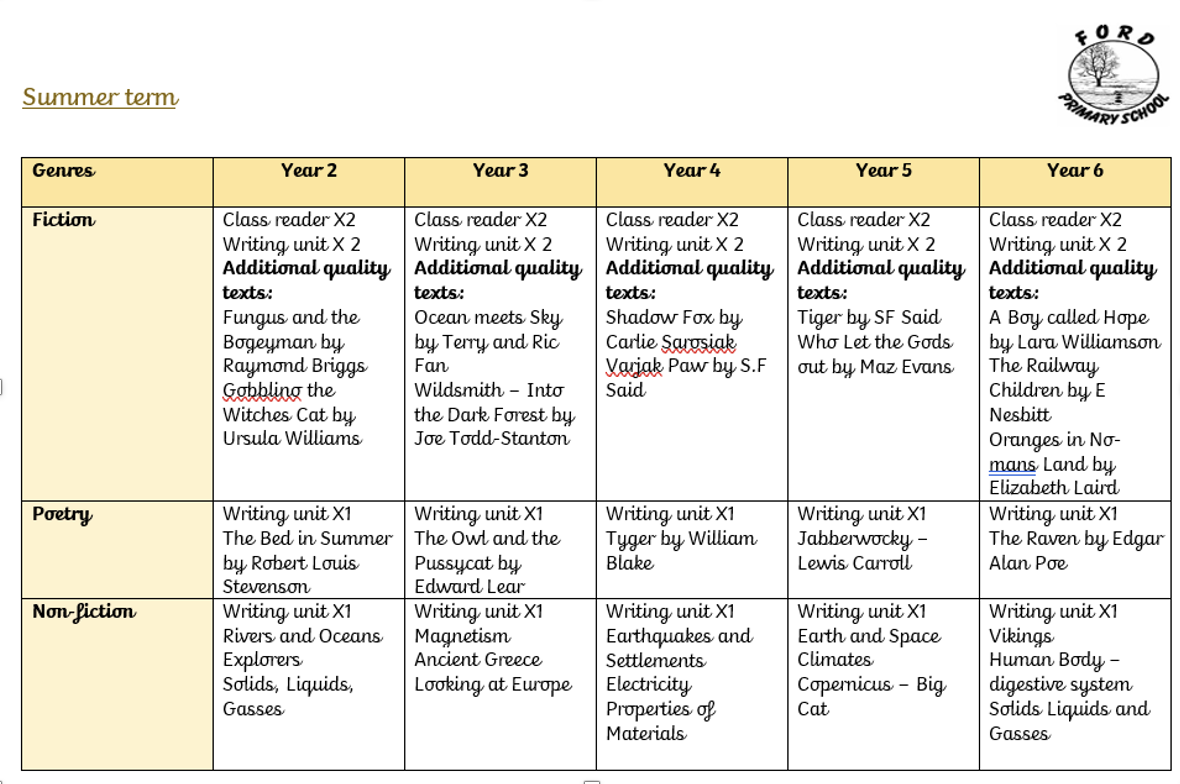



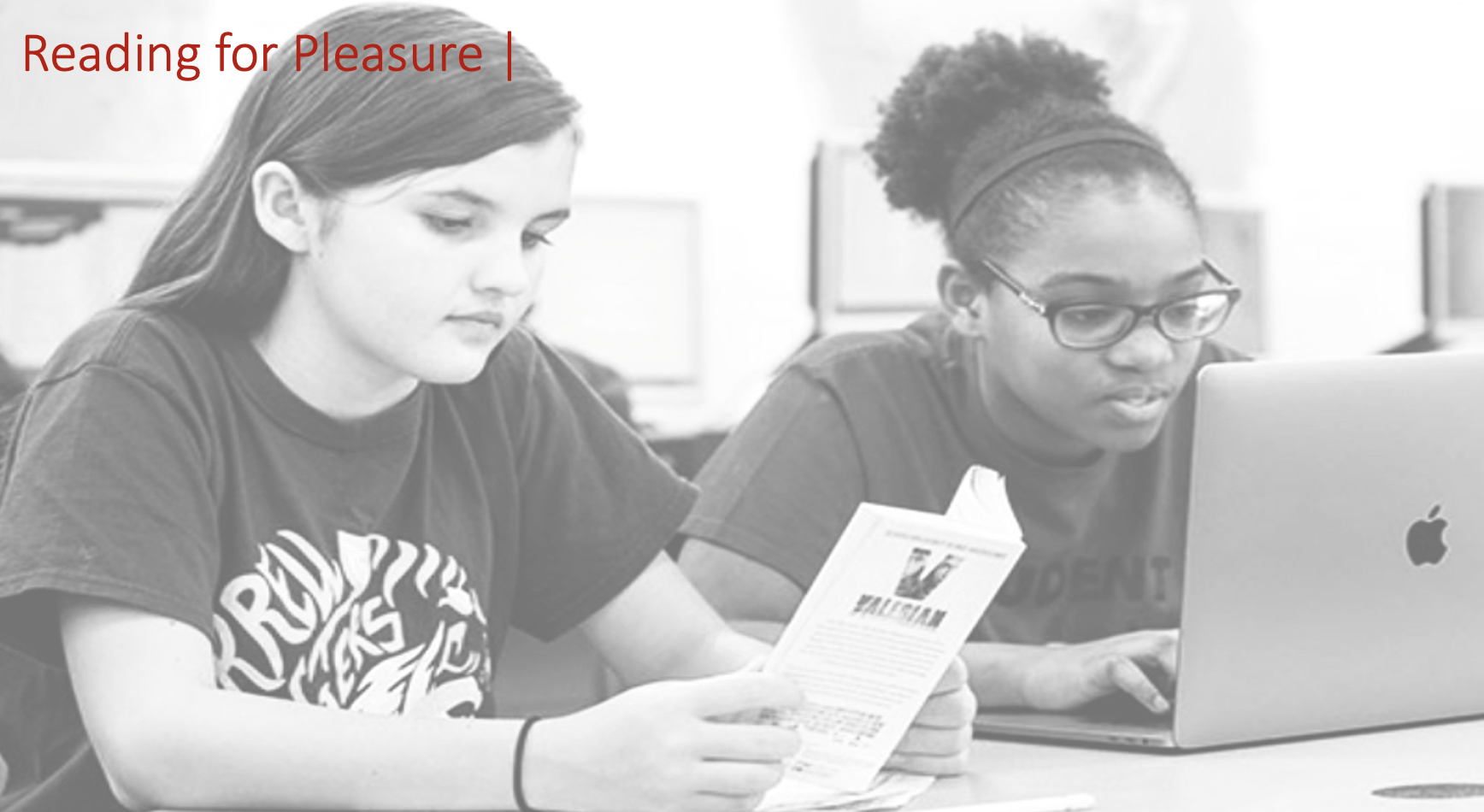
Our Routines | End of Day Reading
At the end of each day, the children are read a class story by the teacher from a range of carefully selected texts that are rich in vocabulary, diverse and cover a range of genres. We use the Super 6 model to inform our choices. This is a time where reading is for pleasure to help develop children's excitement in books and enjoy a story being read to them. The teacher helps bring the story to life and models good reading.
It is important that the pupils have the highest quality texts available, some traditional and some progressive.




